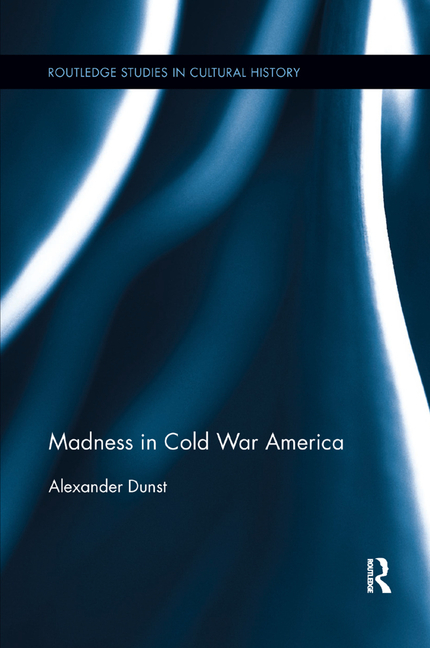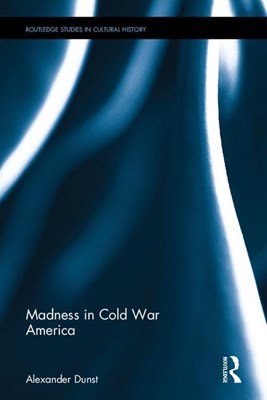
Madness in Cold War America
| Quantity | Price | Discount |
|---|---|---|
| List Price | $49.95 |
$49.95
Book Information
| Publisher: | Routledge |
|---|---|
| Publish Date: | 03/22/2019 |
| Pages: | 174 |
| ISBN-13: | 9780367264000 |
| ISBN-10: | 0367264005 |
| Language: | English |
Full Description
This book tells the story of how madness came to play a prominent part in America's political and cultural debates. It argues that metaphors of madness rise to unprecedented popularity amidst the domestic struggles of the early Cold War and become a pre-eminent way of understanding the relationship between politics and culture in the United States. In linking the individual psyche to society, psychopathology contributes to issues central to post-World War II society: a dramatic extension of state power, the fate of the individual in bureaucratic society, the political function of emotions, and the limits to admissible dissent. Such vocabulary may accuse opponents of being crazy. Yet at stake is a fundamental error of judgment, for which madness provides welcome metaphors across US diplomacy and psychiatry, social movements and criticism, literature and film. In the process, major parties and whole historical eras, literary movements and social groups are declared insane. Reacting against violence at home and war abroad, countercultural authors oppose a sane madness to irrational reason-romanticizing the wisdom of the schizophrenic and paranoia's superior insight. As the Sixties give way to a plurality of lifestyles an alternative vision arrives: of a madness now become so widespread and ordinary that it may, finally, escape pathology.


